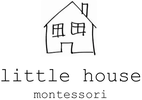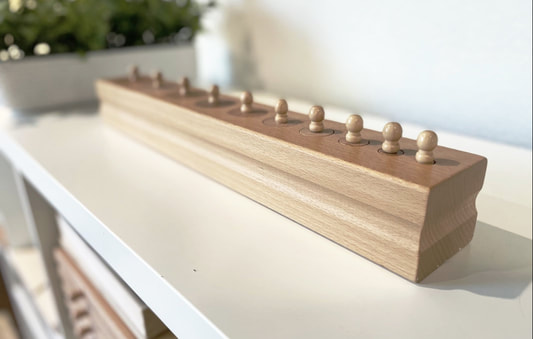|
Schedule
yearly schedule: LHM is open year round, with seasonal breaks. A Fall break the week of Thanksgiving, Winter break the last two weeks of December, a Spring break before Easter, and summer break in July. weekly schedule: LHM is open Monday through Friday 8:30 am - 3:30 pm. daily schedule: LHM opens at 8:30, and children begin their day with morning routines- lunches are put away, jackets are hung, shoes are taken off and replaced with classroom slippers, hands are washed, and the daily *magic* begins. 8:30-10:15 ~Work time~ The children will calmly connect with the classroom by choosing activities to promote concentration, creativity, and coordination. 10:15-10:30 ~Snack time~ The children will have a community snack, while practicing grace and courtesy and communication skills. 10:30-11:00 ~Group time~ The children will come together to engage in music, stories, activity presentations. 11:00-11:40 ~Outdoor Exploration~ The children will partake in outdoor activities, nature connections, and peer cooperation. 11:40-11:50 ~Literature Time~ The children listen to and create a conscious connection with a piece of literature. 11:50-12:20 ~Lunch~ The children will eat together, and use practical life skills to set their space, prepare their food, and eat independently. 12:20-12:50 ~Outdoor Play~ The children play outside freely, digging in the sandbox, sliding, climbing, biking, running, playing ball, imaginary play, and so much more! 12:50- 1:00 ~Nap Preparation~ The children prepare for rest, and calm their bodies with music, meditation and stretches. 1:00-3:00 ~Nap/Quiet time~ The children who nap, will rest for as long as needed, while those who do not need to rest, partake in activities, lessons, and quiet exploration. 3:00-3:30 ~Prepare for dismissal~ Napping children wake, and tidy their space. All children gather their items, and we end our day together while waiting to head home. |
Development
There are four areas of development to address the whole child: cognitive: how children think, problem solve and explore the world emotional: a child's connection with themselves, understanding of feelings, control over emotions social: the child's ability to interact with others, showing sympathy and care physical: the fine and gross motor development, hand-eye coordination, muscle control With your knowledge of the above areas of development, coupled with the following curriculum areas, every child will have the opportunity to practice these skills daily: practical life: caring for one's self, the environment, and others sensorial: refinement of senses (see, hear, smell, taste, touch) math: numbers, quantity, fractions, time, decimal system, linear/baric measurement language: pre-reading skills sound to symbol understanding, consonant vowel consonant (CVC) words, blends, beginning reading, beginning writing science: botany, zoology, science concepts geography: land/water/air, landforms, continents, culture art: exploration of different materials to express oneself As we address areas of a development and curriculum topics, lastly we have goals to work toward mastering: independence: when a child feels confident enough to attempt a task on their own coordination: the ability to complete a task with physical and mental connection ending in success concentration: attending an activity without becoming distracted or losing interest organization: valuing placement of items to complete a task in order to finish efficiently |
Little House |
Program |
|


